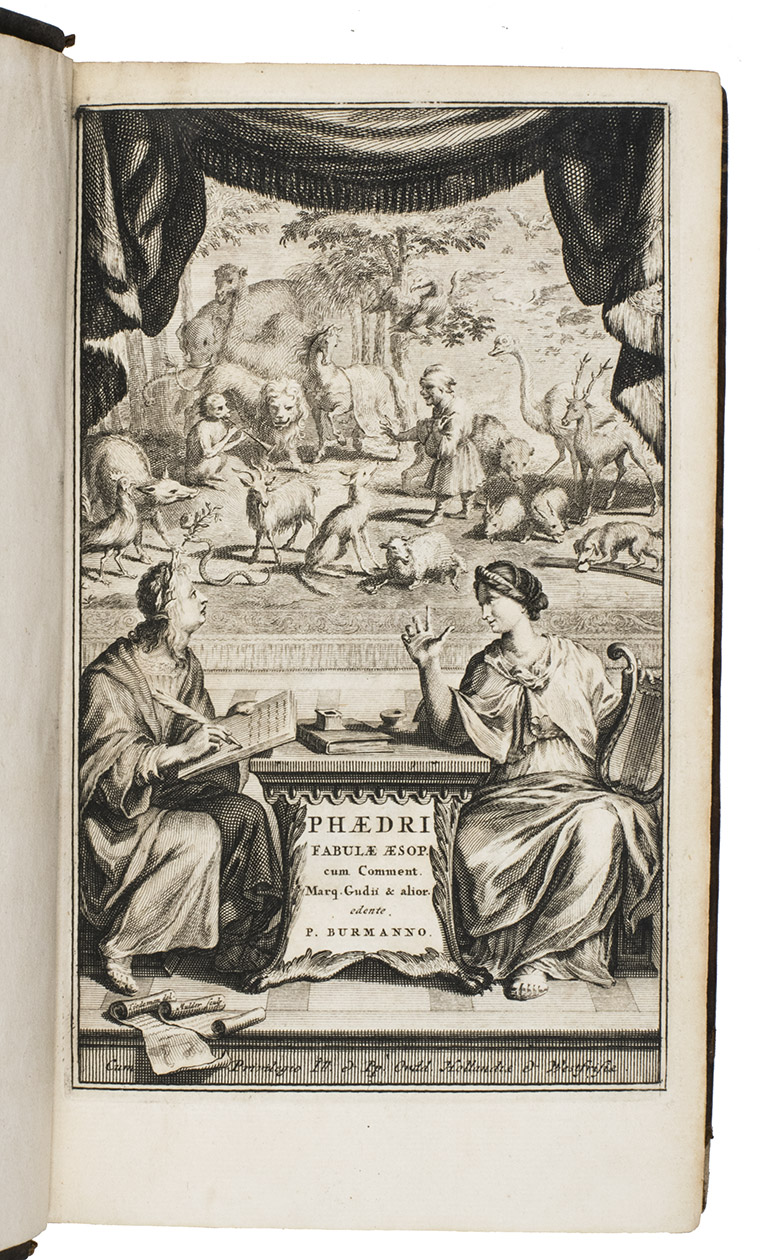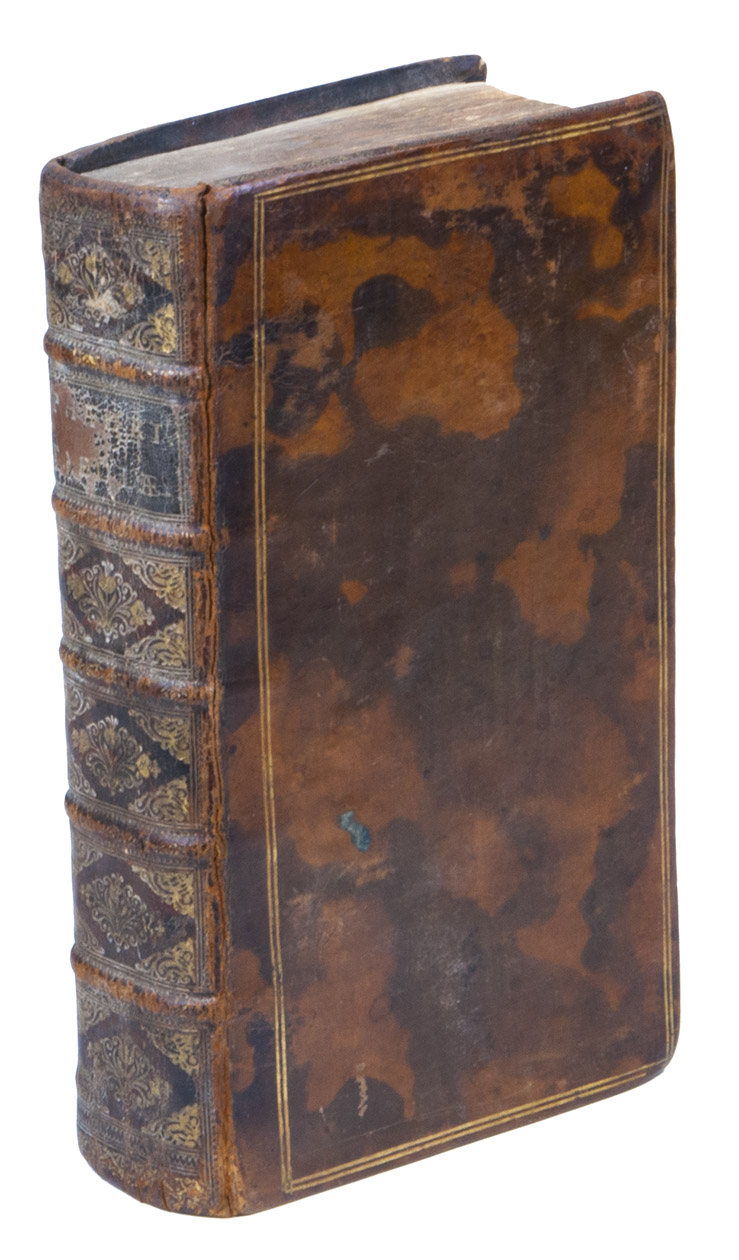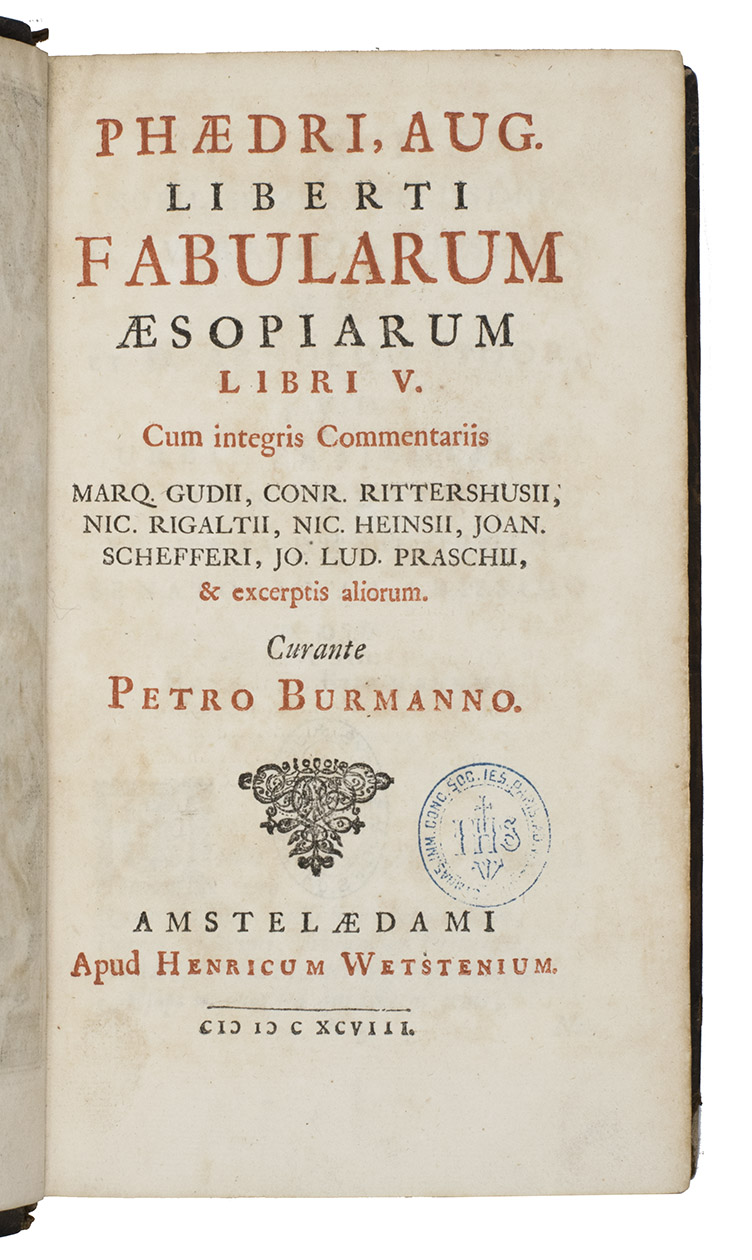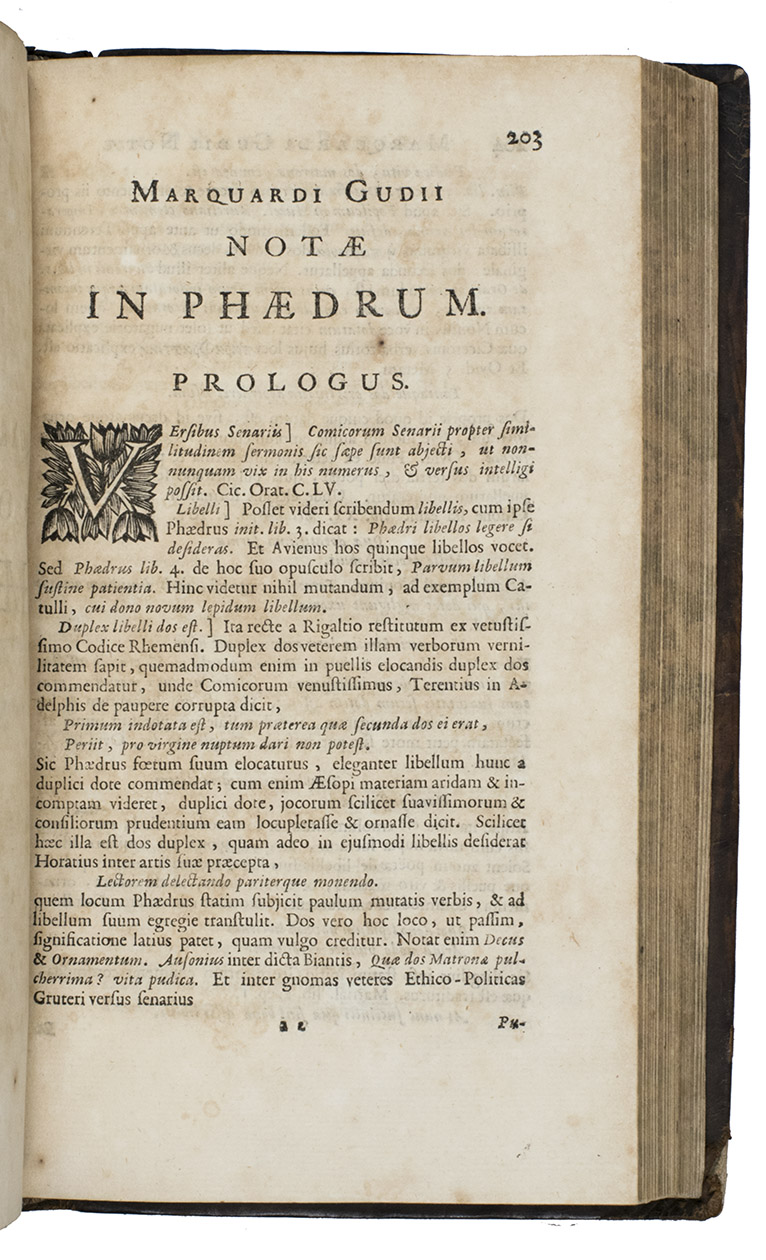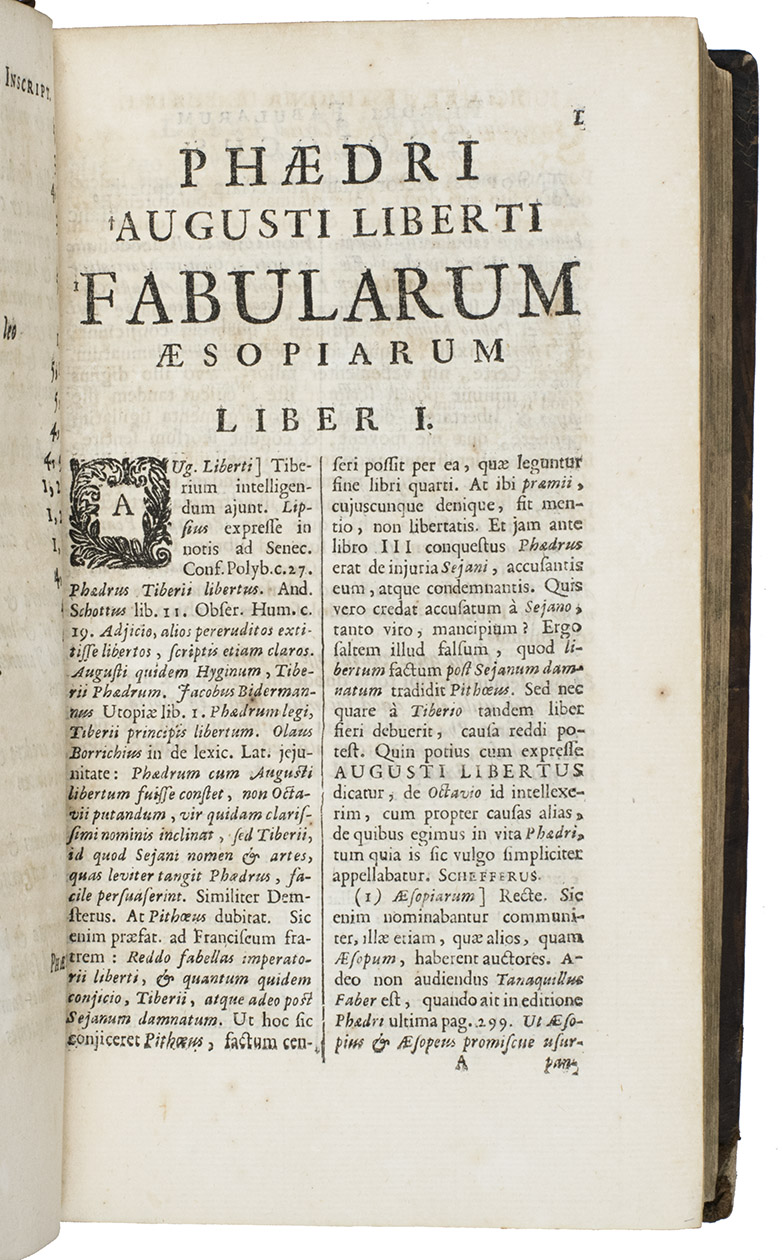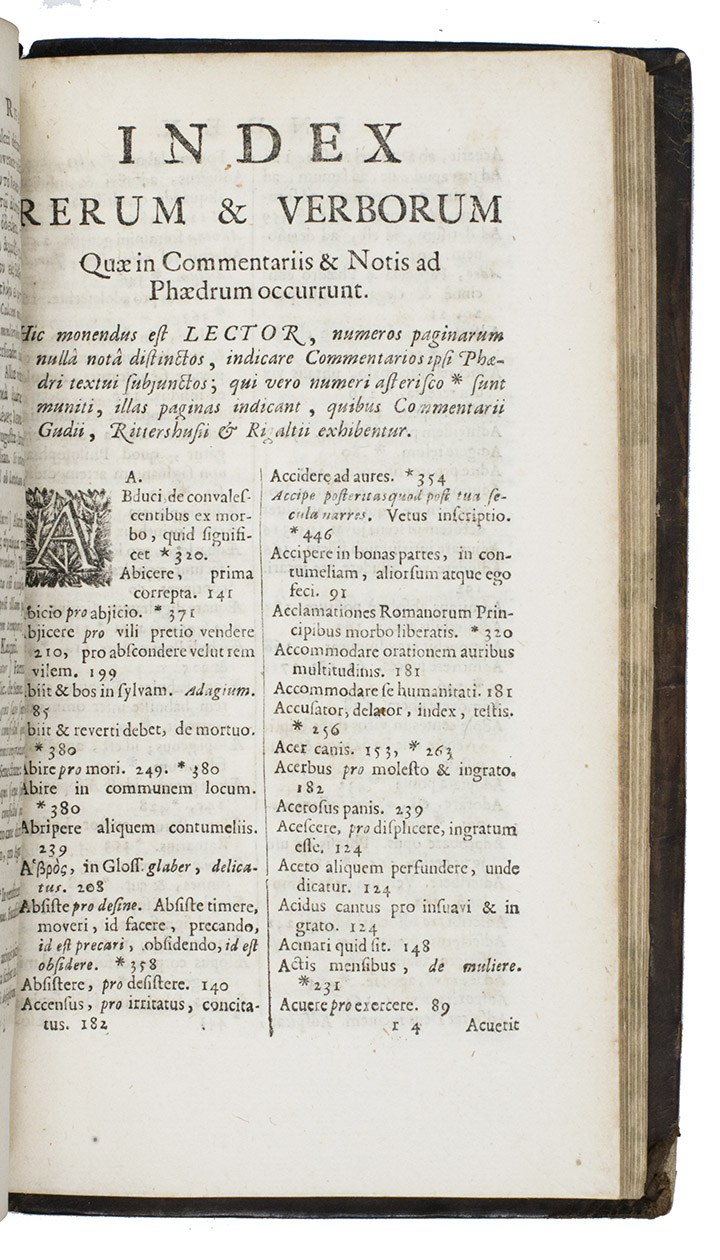PHAEDRUS.
Phaedri, Aug[usti]. Liberti fabularum Aesopiarum libri V...
Amsterdam, Henricus Wetstein, 1698. 8vo. With an engraved frontispiece, title-page in red and black, woodcut title vignette and woodcut decorated initials. Mottled calf, gold double fillets on sides, gold-tooled spine with title in gold, gold-tooled board edges. [56], 312, [56], 201-462, [58] pp.
€ 2,500
First edition of the important Burman redaction of Phaedruss Latin verse translation of Aesop, together with the important commentaries and notes by (1) Marquatus Gudius (1635-1686), with four new fables discovered by him, published here for the first time. His correspondence (edited by Burman, 1697) is the most important authority for the events of Gude's life, besides containing valuable information on the learning of the times; (2) Conradus Ritterhusius (1560-1613), Professor of Law at Altdorf and editor of classical texts; (3) Nic. Rigaltius (1577-1654, a French classical scholar who prepared annotated editions of Martial, Juvenal and others, in addition to Phaedrus. He was librarian to Louis XIII; (4) The famous Dutch classical scholar Nicolaus Heinsius (1620-1681), son of Daniël Heinsius and one of the purest and most elegant of Latinists of the Dutch golden age; (5) Joannes Scheffer (1621-1679), one of Swedens most important philologists; and (6) Johannes Ludivicus Praschius (1637-1690), a magistrate at Regensburg who had published his notes on Phaedrus in 1660. Burman was more compiler than critic, but his commentaries show immense learning and accuracy.
With library stamp on title-page. One corner bumped. Bodemann 90.1; Landwehr F146; Schwabe/Barbier, pp. 65-67; cf. Fabula docet 118 (pp. 189-190: 1727 ed.).
Related Subjects:
